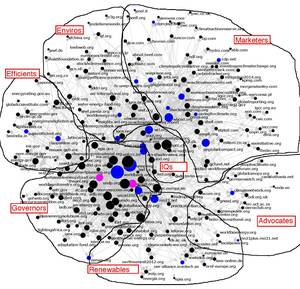Large Scale Change Action Research
By: Steve Waddell, Milla McLachlan, Greta Meszoely, Sandra Waddock
The really big issues of today such as climate change, poverty, food security, sustainable energy are essentially big geographically – they’re part of globalization. As “complex challenges”, these issues require an action research approach: they require active engagement of stakeholders in the co-development of solutions, prototypes and experimenting. Working locally we always hit against boundaries of bigger systems that limit opportunities for change. Transformation of the food system locally hits up against the reality of global companies and markets. But how do we do action research that addresses the “global”? How do we address the local and the global as a whole?

Action research is just beginning to take on this challenge, informed by leading thinking about scale, transformation and complexity. These are summarized as seven guidelines:
- Make a conceptual distinction between the ‘change’ and ‘production’ systems: the former is distinguished by efforts to change the latter and they require distinct competencies and stakeholders have very different roles.
- Support coherence amongst current change agents: this means moving action frameworks from change initiatives as the locus, to change systems.
- Develop multiple initiatives at various levels: local, national, regional and global are all interconnected.
- Strategize around change sub-systems: Policy, technological, finance, production and consumption
- Pay Attention to the ‘Glue’: this means paying attention to the visions and values that can support the diversity of stakeholders and their individual as well as collective goals.
- Build the system’s ability to see itself: mapping and diverse stakeholder dialogues are key tools.
- Focus on action that is meaningful for stakeholders: if we don’t know and address their goals, we won’t get far.
You can also see more about this HERE.
